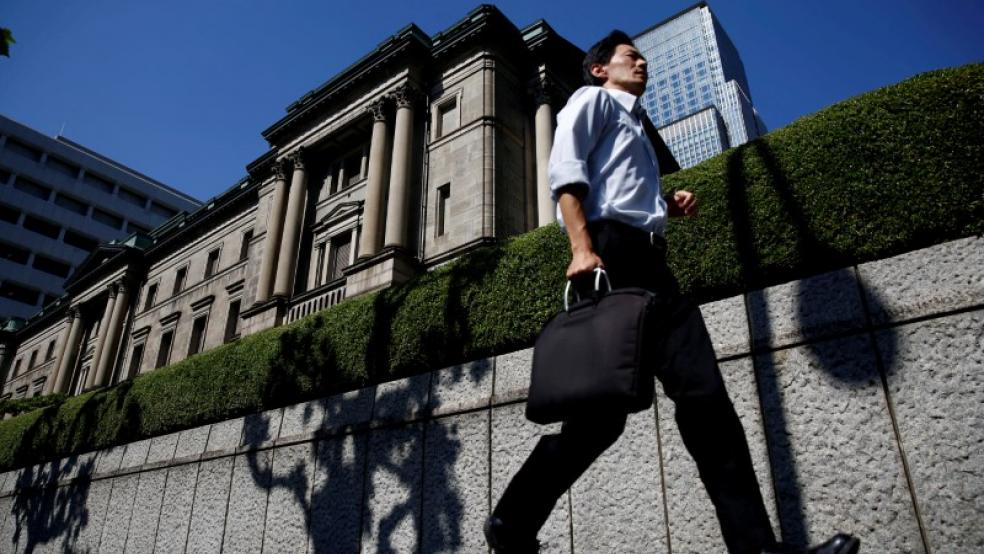TOKYO (Reuters) - Economists fear that the Bank of Japan's ultra-low interest rates could hurt banks' ability to do business if they are kept too long, a Reuters poll found on Wednesday.
BOJ Governor Haruhiko Kuroda flagged this possibility when he referred in November to a "reversal rate," or the level where central bank rate cuts can hurt the economy by squeezing banks' lending margins to a level where they lose interest in making loans.Last week, Kuroda signaled the BOJ may edge away from its crisis-mode stimulus by warning of the risk that heavy stimulus could undermine regional banks' health. Twenty-eight of 36 economists polled Dec. 4-12 said they were "concerned to some extent" or "very concerned" about the adverse impact the BOJ's policy could have on banks. Five said they were not much concerned and three said they were not at all worried."Banks' profitability in their main business has been squeezed and regional financial institutions may go bankrupt if the current monetary policy continues for another few years," said Takeshi Minami, chief economist at Norinchukin Research Institute.The poll found 17 of 35 economists said recent comments by BOJ board members on the reversal rate would not influence monetary policy. But 13 respondents, or about a third, believe such talk suggests the central bank refrain from additional easing.Atsushi Takeda, chief economist at Itochu Economic Research Institute, welcomed a debate of "reversal rate" issues."I think a broad discussion will help explore flexible possibilities in an exit strategy," he said in the poll. At its October meeting the BOJ maintained a pledge to guide short-term interest rates to minus 0.1 percent and 10-year bond yields around zero percent.Median forecasts in the poll found the BOJ will keep both short-term rates and the 10-year bond yield target unchanged at least until the second half of 2019.Most economists surveyed said the BOJ would start scaling back its stimulus in late 2018 or after.Japan's economy is on its second-best stretch of uninterrupted post-war growth thanks to robust overseas demand. If this expansion continues to January 2019 it would be longest run of growth on record.Twenty of 33 economists polled projected the economic expansion would continue until 2020 or beyond, while 11 expected it would end in the second half of 2019. Two said it would end in the first half of 2019."We don't expect the economy will go into recession as our main scenario," said Hidenobu Tokuda, senior economist at Mizuho Research Institute."But there is a chance that could happen if there are economic shocks abroad, or if the overseas economy slows down at the same time as a drop in demand after the planned sales tax hike (in 2019) or after the (2020) Olympic Games." (Reporting by Kaori Kaneko; Polling by Shaloo Shrivastava and Khushboo Mittal; Editing by Malcolm Foster and Eric Meijer)Japan's ultra-low rates could hurt banks' business, economists say: Reuters poll

KIM KYUNG-HOON



